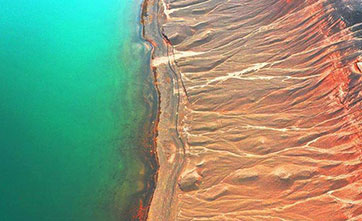WHO says tackling health inequities key to Africa's pandemic recovery
NAIROBI, April 7 (Xinhua) -- Realization of an inclusive and speedy post-pandemic recovery in Africa hinges on robust action on inequalities that are responsible for poor health outcomes in the continent, a senior World Health Organization (WHO) official said on the World Health Day that falls on Wednesday.
Matshidiso Moeti, WHO regional director for Africa, said the pandemic has worsened health inequalities in the continent with the poor grappling with limited access to life-saving drugs and contraceptives.
"We need to act on the social and economic determinants of health, by working across sectors to improve living and working conditions, access to education for the most marginalized groups," Moeti said in a statement issued in Nairobi.
She said the theme of this year's World Health Day "Building a fairer, healthier world" reinforces the urgency to tackle financing and policy hurdles that have derailed access to quality healthcare services in Africa.
According to Moeti, discrimination based on gender, income, age, educational level, ethnicity and disability has fuelled health inequalities in Africa.
"Recent data from 17 African countries show for example that a person with secondary school education is three times as likely to have access to contraception as someone who has not attended school," said Moeti.
She said that high net-worth African women are five times more likely to deliver in health facilities and have their babies vaccinated against tuberculosis compared to those in the low-income category.
Moeti said that robust engagement with communities, effective data collection, reforms and innovative financing is key to address health inequalities in Africa.
"Investment is also needed to accelerate progress towards Universal Health Coverage, to protect individuals from financial hardship in accessing needed care and improve service coverage," said Moeti.
She said that WHO has partnered with African countries to strengthen their capacity to collect data, and integrate COVID-19 response in national programs to reduce health inequalities.
"In the past year, we have disseminated technical guidance on gender, equity and COVID-19 and trained over 30 country teams in gender and health equity integrated programming," said Moeti.
The teams are using skills gained to support equitable health response, including to deal with gender-based violence in the context of COVID-19, she added.
The WHO official said that political goodwill combined with strategic partnerships is key to build resilient health systems in Africa amid pandemic-related shocks.
Photos
Related Stories
- World Health Day 2021: WHO calls for fair vaccine distribution
- WHO expresses concern about surging COVID-19 cases in Philippines
- IMF urges policymakers to provide flexible, tailored support amid pandemic
- New Ebola outbreak kills 3 in Guinea: Africa CDC
- WHO mission member says virus origin-tracing necessary in other parts of world
Copyright © 2021 People's Daily Online. All Rights Reserved.










